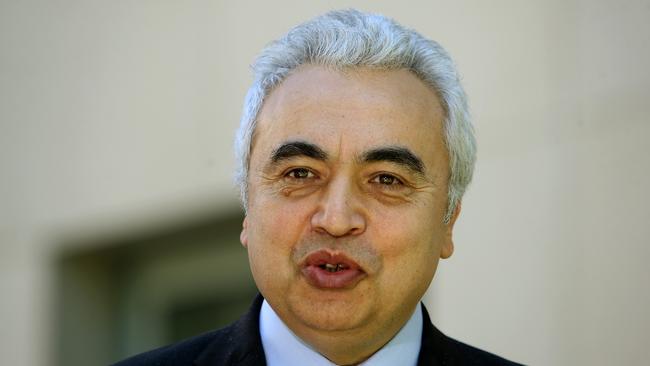Energy expert: ‘end bans on gas exploration to inject wealth’
Australian states must end their bans and restrictions on gas to inject wealth into local communities, an expert says.

Australian states must end their bans and restrictions on gas to help combat global climate change and inject wealth into local communities, the head of the world’s peak energy agency has warned.
The intervention from Fatih Birol, considered one of the most influential energy experts, will increase pressure on the Labor-led governments of Victoria and the Northern Territory, as well as the NSW Coalition, to rethink their moratoriums and limits on gas after Chief Scientist Alan Finkel called for an evidence-based, case-by-case approach.
In an exclusive interview with The Weekend Australian following the release of the International Energy Agency’s gas market report, Dr Birol said Australia needed a “long-term fix” to encourage supply and lower prices.
“A major part is to lift the state government exploration of gas and to ensure at the same time the production is done in an environmentally responsible way,” he said. “To say ‘no’ to production growth in those states is in my view the easy way but not the right way. The more challenging and right thing would be to minimise or nullify the environmental impacts through setting the right regulations and standards, and let the production grow and make the states prosper.”
Dr Birol stressed the bulk of Australia’s gas exports would go to Asian nations using inefficient coal-fired power and labelled the decisions taken by some east coast states to restrict gas production as “myopic”.
“One tonne of CO2 going into the atmosphere from Beijing or New Delhi or Hamburg has the same impact on all of us,” he said. “Those states and all of us need to think in a global manner. One of the biggest challenges we face in the world is climate change. “Using Australia’s gas to replace the coal used in China and India would make tremendous benefits to our fight in global warming.”
Energy Minister Josh Frydenberg yesterday said that gas would continue to play an important part in Australia’s energy mix and would help “developing nations transition to a lower emissions future”.
Victorian Energy Minister Lily D’Ambrosio said the government’s priority was to secure “more Victorian gas for Victorian customers, while protecting the interests of our regional communities ... Victorians are experiencing higher gas prices at a time when we’re exporting two-thirds of our gas overseas.”
A spokesman for NT Chief Minister Michael Gunner said the government’s policy was unchanged.
Bill Shorten has also urged states to seriously consider natural gas exploration.
The IEA, which Dr Birol has run for nearly two years, found domestic prices for gas being above export prices indicated a “market failure” in Australia and the situation was only “exacerbated” by restrictions on both unconventional and conventional gas by some east coast governments.
Fresh from a trip to the United States, Dr Birol said developments in the gas market, especially LNG, was a key topic of discussion.
The IEA says Australia will be the world’s leader in LNG capacity by 2018 with 118 billion cubic metres per year — ahead of Qatar — and will maintain that position through to 2022, when the production of gas is expected to reach 135 bcm.
Consumption of natural gas is forecast to reach 51 bcm in 2022 as closing coal-fired power stations are substituted with gas, while exports are tipped to increase to 90 bcm.



